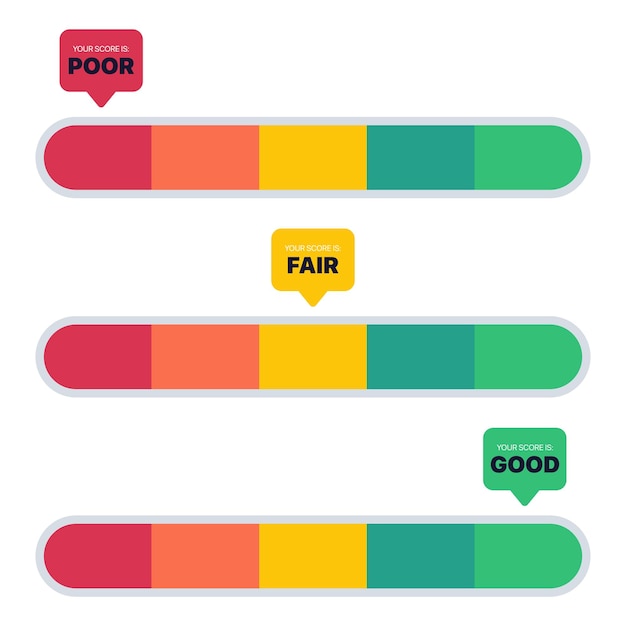Your credit score can make a big difference when it comes to your mortgage rate. I learned this the hard way. Every time I tried to get a new mortgage or refinance an old one, my lender would ask for my credit score. If it was anything less than 720, they’d tell me to look elsewhere.
Before the 2008 financial crisis, a credit score of 720 or above was enough to get the best mortgage rates and the lowest fees. But after 2012, you needed at least an 800 credit score to get the same benefits. So, I decided to work on improving my credit score. By September 2013, I had a score above 800, and I’ve kept it there ever since.
Having a high credit score has helped me a lot. I was able to buy a new property at a competitive rate in 2014, and then refinance it to an even lower rate in 2018. More recently, in mid-2020, I bought my forever home with a 7/1 ARM at only 2.125%. Being a responsible borrower has definitely paid off.
But what if things were different? What if people with higher credit scores had to pay higher fees? This would discourage people from being responsible borrowers, and it could lead to another housing crisis.
Unfortunately, this is exactly what’s happening. The Federal Housing Finance Agency (FHFA) has changed the fee structure for loan-level price adjustment (LLPA). Now, if you have a credit score of 740 or higher, you’ll have to pay more in fees. For example, on a $500,000 loan, you used to pay a 0.25% fee, or $1,250. But after May 1, 2023, you’ll have to pay as much as 0.375%, or $1,875, on the same loan.
This might not seem like a big deal, but it’s a 50% increase from what you would have paid before the FHFA changed the rules. And if you’re not paying a higher mortgage fee, then the fee will be rolled up into a higher mortgage rate.
But it’s not all bad news. The FHFA has also decided to lower the fees for people with lower credit scores. For example, starting in May 2023, a homebuyer with a credit score of between 640 to 659 and who has a down payment of only 5% will incur a loan-level price adjustment fee of 1.5%, down from 2.75%.
This means that someone purchasing a $500,000 home would now only pay an LLPA fee of $7,500, down from $13,750 previously. This is a significant benefit for these lower credit score potential homebuyers.
However, the lost 1.25% in LLPA fees is now being made up by homebuyers with higher credit scores. People with lower credit scores are either being rewarded or being given a break. Your view depends on your philosophy.
The changes in fees based on credit score have some implications. High credit score homebuyers might negotiate harder with their lenders to get a greater discount. This could put further strain on the lending industry, which has already seen volume dry up due to higher mortgage rates.
On the other hand, if the lower mortgage fees and rates bring in more homebuyers, there could be upward pressure on home prices. This would enrich existing homeowners even further. And if more people are richer, there will be less crime and less strain on the government to provide.
But there’s one unintended consequence of these changes. They could have a disproportionate negative impact on Asian Americans, who tend to have higher credit scores. According to the U.S. Federal Reserve data, Asian Americans have an average credit score of 745.
If you’re an Asian American looking to buy a home, you may need to get at least a 760 credit score, if not an 800+ credit score, to have the same chance of getting a similar mortgage as other races.
So, what do you think about the Federal Housing Finance Agency charging higher fees for those with higher credit scores? What are the implications of this new policy to the housing market? Are you for or against potentially homebuyers with lower credit scores getting to pay lower fees?
Remember, shopping around for a mortgage is always a good idea. And if you feel you are being treated unfairly, speak up! This way, you’ll increase your chances of getting a competitive mortgage rate.
At the end of the day, having a higher credit score and being in better financial shape makes life easier. If other people who are struggling are getting a break, then good for them. I’ve been able to build my fortune in America, and I hope many more people get to do the same.
